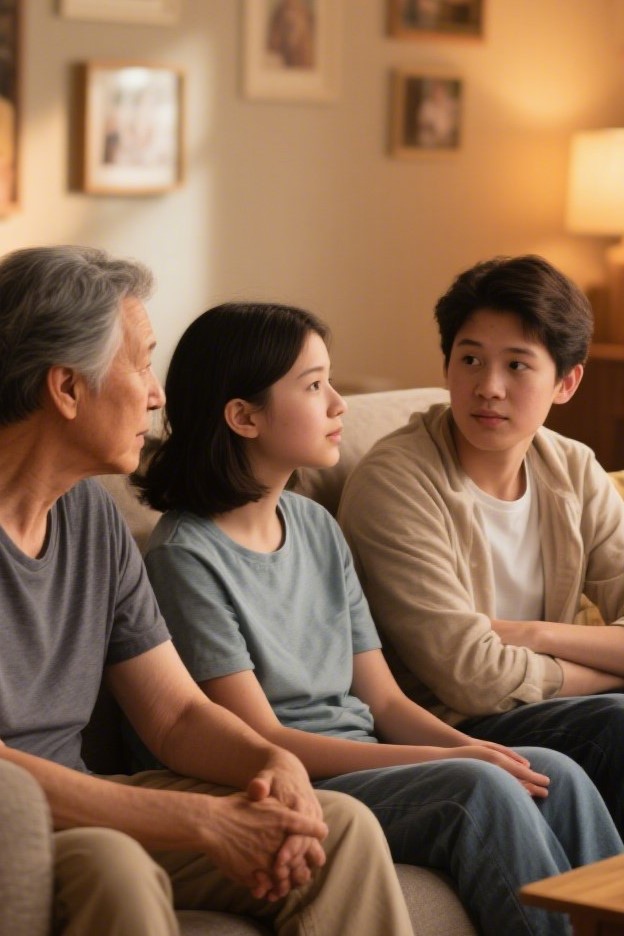Teen friendships can be beautiful — full of laughter, late-night chats, and matching profile pictures. But they can also be confusing, dramatic, and downright heartbreaking. One day they’re BFFs, the next? Ghosted. Left out. Betrayed. Crushed.
If you’re a parent watching this unfold, you might be asking yourself:
“How do I help my teen with friendship issues without making it worse?”
Let’s walk through this delicate dance — with empathy, wisdom, and a dash of creativity.
🧡 1. Be Their Safe Harbor, Not Their Fixer

Your teen doesn’t need you to solve their social life like a Rubik’s cube. They need a space where they can unravel it, without judgment.
Instead of:
“You should just stop talking to them.”
Try:
“That sounds really painful. Do you want to talk about what happened?”
🧠 Why it works: Teens are still figuring out who they are, and how to relate to others. Your calm, non-reactive presence reminds them they’re not alone, even when friendships feel stormy.
👂 2. Listen Between the Lines

Sometimes your teen will come to you with the whole story. Other times, it’ll just be silence, mood swings, or vague one-word answers. “I’m fine” might actually mean, “I feel rejected, confused, and invisible.”
🌧️ Clue in: Notice behavior shifts — like avoiding texts, withdrawing from activities, or crying more often. Ask open-ended questions like:
“What’s been going on with your friends lately?”
“Has anyone made you feel left out or uncomfortable?”
Your gentle curiosity can open the floodgates — or at least plant a seed for later conversation.
🧭 3. Avoid Demonizing Their Friends (Even If You Want To)

Yes, that one friend may have been manipulative, flaky, or rude. But to your teen, that person still mattered. If you attack them, you may also shut down your teen’s willingness to talk.
🚫 Skip: “They were never a real friend anyway.”
💬 Try instead: “How did that make you feel when they did that? Do you think that’s how healthy friendships work?”
Let them draw conclusions. It helps them build emotional maturity and self-trust.
🌱 4. Model Healthy Boundaries & Conflict Resolution

Teens learn more from what you do than what you say. Show them how you deal with conflict, maintain friendships, and handle rejection. Normalize the idea that:
- It’s okay to outgrow people.
- It’s okay to feel hurt and still be kind.
- It’s okay to walk away from toxic dynamics.
👀 Mini life lesson: “Sometimes we think we’re losing a friend, but we’re actually making space for better ones.”
💬 5. Role-Play, Rehearse, Reflect

If your teen is open to it, help them practice how to respond to tricky situations:
- “What could you say if they exclude you again?”
- “How can you express your feelings without escalating drama?”
- “What would it look like to stand up for yourself kindly?”
🎭 It might feel silly, but role-playing gives teens the words they often struggle to find in real life.
🌈 6. Remind Them: Friendships Evolve, and So Will They

Friendship issues in adolescence feel huge because teens are learning about identity, loyalty, and belonging — all at once. Help them zoom out. This moment is a page, not the whole story.
💖 Reassure them: “You’re not broken. You’re becoming. And the right friends will love the person you’re growing into.”
✨ Final Thought: Be the Friend They Can Always Come Home To
You can’t control your teen’s social world. You can’t stop the drama, the heartbreak, or the growing pains. But you can be their anchor — the one who listens, believes, and stays.
And sometimes? That’s more healing than any advice.





